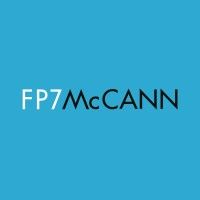
Your Shot: How FP7/McCann Are Reimagining Modern Middle Eastern Parenting
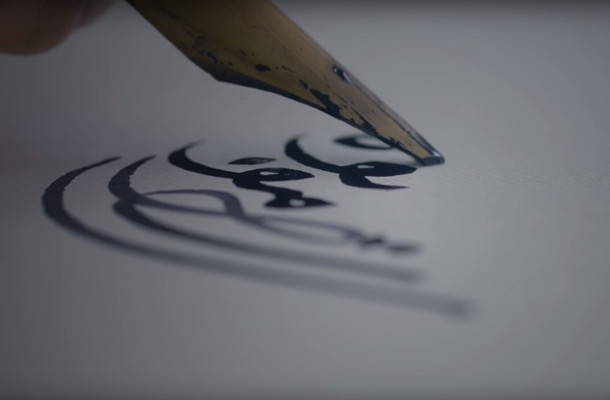
Language is powerful. It shapes our understanding. It creates our reality. The Arabic word for ‘parenthood’, for example, is rooted in the word for fatherhood. The word’s etymology reflects a traditional, patriarchal outlook.
For Mother’s Day, FP7/McCann Dubai and their client Babyshop wanted to tackle this inequitable quirk of language and put mums back in the picture. That’s why they teamed up with a group of Arabic writers to invent a new word for parenthood that includes both mothers and fathers. Al Umobuwah.
As well as being a smart business move for Babyshop, getting people talking about the brand, the project also has the potential to both nudge and reflect culture and potentially change the lexicon. The project has resonated in the Middle East region, generating an 85% positive rating, garnering 5 million views online and being picked up by news channels – and its even spread further afield to Arabic speaking populations in Asia.
LBB’s Laura Swinton spoke to Tahaab Rais, Regional Head of Strategy for FP7/McCann to find out how this fascinating project came to be and how the team is working with schools and influencers to get the word out.
LBB> What was the initial challenge or problem that Babyshop came to you with?
TR> Babyshop has been a leading retailer for children’s clothes, toys, accessories and more for decades. FP7/McCann Dubai won their business for the entire Middle East region at the start of the year. And the agency’s mandate was clear: Have a fresh and real take on the work done for Babyshop, give it a more meaningful role in people’s lives and make it a brand that will be talked about and loved, especially by Arabs in the Middle East who have deep pockets and buying power. The agency and the brand are looking to do this consistently across the year at every opportunity possible.
LBB> And how did you get to the insight around the etymology of the Arabic word 'parenthood'. Is the fact that its roots lie in 'fatherhood' an issue that is quite commonly discussed or is it one of these things that was hiding in plain sight, so to speak?
TR> Arabic, as well as numerous languages, contains varieties of words that stem from paternal centred roots. The word “parenthood” - الابوة (Al Obuwah) is one of them. Although, many people have, over time, understood that word to mean both - father and mother - the word “parenthood” in Arabic actually translates into “fatherhood”. Over the years, other words to represent “parenthood” have been created such as Walediya – but that too is derived from the paternally-rooted Waled (father). Now, there is nothing incorrect about this and there’s nothing wrong with the language - truth is that every year new words are added to it - as it is seen to be a constantly evolving language. So, there was an opportunity to add to the language.
As a brand that always celebrates parenthood and is close to mothers across the region, when building its meaningful role, the agency realized this insight; and felt that “parenthood” could do with a little evolution. Babyshop too believed it was time to give mothers the equal resonance and recognition of their roles in parenthood, by bringing “mother” into the Arabic word for “parenthood” too.
LBB> I thought that it was interesting that instead of simply using 'motherhood', you decided to combine mothers and fathers in the new word. After all, excluding fathers would have been just as much of a step back! Why was it important to include a more equitable and inclusive definition?
TR> Babyshop’s core target audience are the progressive millennials in the Middle East. Much like parenthood is a shared and equal responsibility (or should be in today’s more progressive world), Babyshop and the agency wanted the word to have a shared and equal representation too vs. choosing a side (as that wouldn’t be inclusive). This new Arabic word, therefore, included mothers and fathers.
LBB> How are mothers' and fathers' parenting roles evolving in the region?
TR> With more millennials becoming young parents, parenting isn’t just seen as a mother’s responsibility any more in the Middle East, as it used to be a few years back. Fathers and Mothers are both working – following careers or running businesses. Men are encouraging more women to work and supporting their decisions. With this there’s a shared empathy of sorts that has developed and that is enabling more active contributions from men at home – be it with kids, with groceries or in the kitchen too.
LBB> You worked with a team of Arabic writers to develop the word - who were they and what were the challenges they had to navigate?
TR> The brand and the agency teamed with writers from local cultural centres along with the agency’s own team of Arabic writers. The challenge was to build a word that didn’t stem solely from paternal roots. The team undertook an intensive research looking at all words for “parenthood” and seeing if any included “mother” in it. After confirming the opportunity existed, the next challenge was in crafting word in a way that it made sense and finally, testing that word (which the agency did across UAE, Saudi Arabia and GCC) to ensure it had a favourable response. There were other words tested which weren’t liked or favoured; the one released and launched by Babyshop was the one that was unanimously approved by Arab speakers.
LBB> How did the idea and word translate into executions?
TR> A video was launched on social media that shared the idea and purpose behind creating this new Arabic word. It also featured people who have embraced and used the word.
While the initial response was 50% negative, as people were resistant to a change in the language, the current sentiment ratio is 85% positive and 15% negative. This has changed because of two factors. Firstly, modern Arabs (Babyshop’s target audience) have embraced it and posted positively about it, including sharing it on their profiles. Secondly, over 40 influencers signed onto the idea and supported it and have shared it across their social media platforms.
The word is being shared with school students through art events.
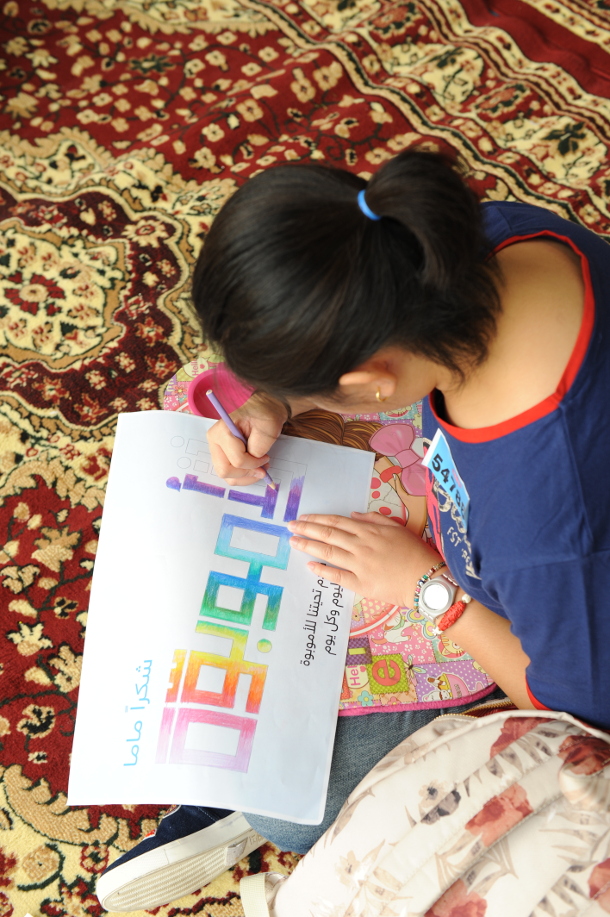
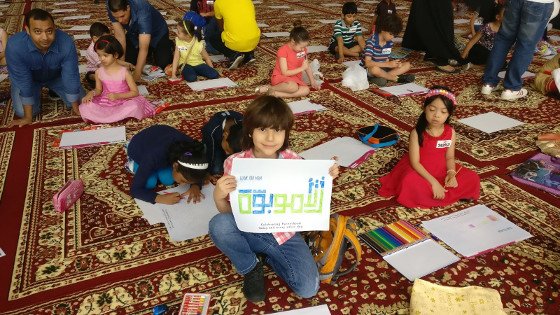
A new collection has been launched for toddlers, infants, kids, teens and adults with a show happening to launch the collection.
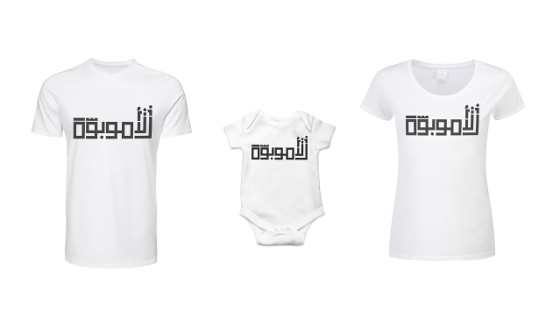
There’s an audio pronunciation guide that has been launched.
Interactive experiences in-store and out-of-store are happening to get people acquainted with the word, and a petition is being launched, with the eventual goal being to get this word into the Arabic dictionary – which will be no mean feat when it comes to a language that no brand has really ever dared to create words for.
LBB> It seems like influencers have been really crucial to this campaign, how did you identify which influencers to work with?
TR> Strategically, the brand and the agency didn’t want to work with celebrity influencers who tend to be over-used by brands. The focus was on getting influencers who suited the Arab millennial parents’ profile, were focused on specific passion points that mattered to the audience and who were genuine and creative with their content. Each influencer embraced the idea and expressed it in their own way. The fact that they genuinely loved the idea helped.
LBB> What sort of impact has the campaign had for Babyshop?
TR> While the official results are being documented at the moment, the idea currently holds an 85% positive sentiment rate across platforms; which is very, very healthy in this region. The idea has garnered around 5 million exclusive cross-platform views and importantly, the expectations are a positive growth in brand talkability, brand love and sales (of the Al Umobuwah collection as well as of Babyshop’s overall fashion collection).
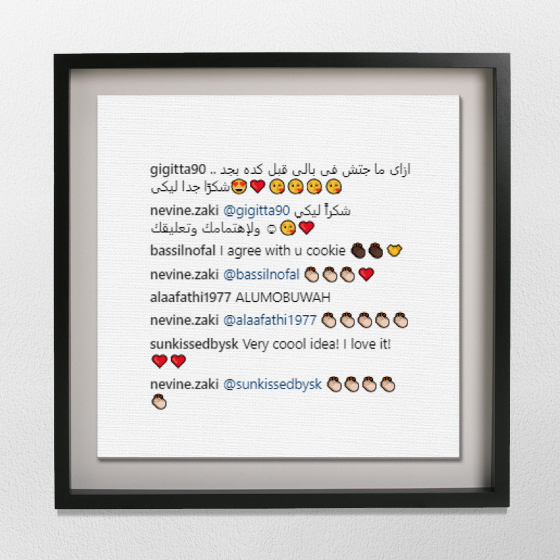
LBB> And are you seeing the word “Al Umobuwah” being adopted more broadly?
TR> People have sent videos of themselves saying the word to Babyshop. News coverage is helping. And it’s growing. The idea has also reached as far as Asia and India, as there have been inquiries from countries like India where the word for “parenthood” called “Pritvutva” also stems from “fatherhood”.







